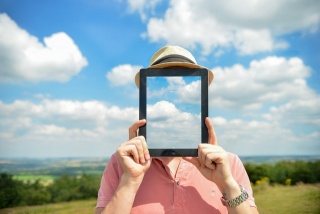Learning in a digital age/LiDA102/Introduction to digital citizenship/Video signpost
From WikiEducator
| “ | In today's world, being literate requires much, much more than the traditional literacy of yesterday. | ” |
| —Rebecca Alber | ||
Traditionally, literacy was about speaking, listening, reading and writing. Literacy has taken on a much broader and complex meaning. Today there's also digital literacy, media literacy, new literacy etc. In this signpost you are invited to reflect on how your literacies have changed, when compared to your parents and to speculate on new literacies the next generation of learners may need for the future.


